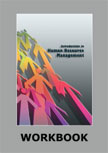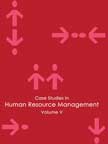SABMiller's Human Capital Proposition - Institutionalizing a Performance
Culture
|
|
ICMR HOME | Case Studies Collection
Case Details:
Case Code : HROB085
Case Length : 15 Pages
Period : 2001-2006
Pub Date : 2006
Teaching Note : Available
Organization : SABMiller Plc.
Industry : Beverage
Countries : South Africa, USA, Europe
To download SABMiller's Human Capital Proposition - Institutionalizing a
Performance Culture case study
(Case Code: HROB085) click on the button below, and select the case from the list of available cases:

Price:
For delivery in electronic format: Rs. 400;
For delivery through courier (within India): Rs. 400 + Rs. 25 for Shipping & Handling Charges
» Human Resource and Organization Behavior Case Studies
» HRM Short Case Studies
» View Detailed Pricing Info
» How To Order This Case
» Business Case Studies
» Area Specific Case Studies
» Industry Wise Case Studies
» Company Wise Case Studies

Please note:
This case study was compiled from published sources, and is intended to be used as a basis for class discussion. It is not intended to illustrate either effective or ineffective handling of a management situation. Nor is it a primary information source.
Chat with us

Please leave your feedback

|
|




<< Previous
Background Note
SABMiller was formed in 2002 by the merger of SAB and MBC.
South African Brewing Company
|
SAB was founded by Jacob Letterstedt in 1895. Initially, it catered its
beverages primarily to a new market of miners and prospectors in and around
Johannesburg, South Africa. Its raw potato spirit mixed with tobacco juice and
pepper was well accepted. It also launched its brand 'Castle Lager,' which went
on to become a huge success. In 1897, it became the first industrial company to
be listed on the Johannesburg Stock Exchange (JSE).
Despite the Anglo-Boer War,4 SAB's profits
rose to £100,000 and assets exceeded £1 million in 1901. In 1910, it founded
Rhodesian Breweries in Zimbabwe.
|

|
Over the next few decades SAB consolidated its position despite the setbacks
due to World War I and the depression that followed the war. In the early
1950s it established new breweries in Zambia and Bulawayo. In the same year,
SAB's corporate office was shifted to London.
|
|
Following the imposition of a heavy tax on beer products by the
South African government in 1955, beer consumers started switching
to spirits, which ultimately hurt the beer industry. SAB responded
to the crisis by acquiring its two main rivals, Ohlsson's and
Chandlers Union Breweries groups in 1956. The acquisitions helped
SAB in reducing costs and maintaining profitability. In the 1970s
and 1980s, SAB established breweries in Botswana and Angola.
Until 1990, SAB remained focused mainly on the South African market.
Between 1990 and 1998, SAB expanded its international operations and
became the fourth largest brewing group in the world with operations
in 19 countries. |
By 1998, it commanded a 98 percent share of the South African
beer market and was considered one of the lowest cost producers of beer in the
world.
In 1999, SAB moved its primary listing5
back to London, raising £300 million in international markets. It decided to
develop and expand its international beer and other beverage operations and to
invest in the rapidly-growing casino industry in South Africa.
It also acquired controlling interest in Pilsner Urquell and Radegast, a leading
brewery in the Czech Republic. SAB's biggest brands at the time included
'Pilsner Urquell', 'Castle Lager' and 'Ursus'. In 2002, it acquired MBC and
created SABMiller.
Miller Brewing Company
MBC was founded in 1855 by Frederick Miller (Miller) in the US, when he
purchased the small Plank-Road Brewery, an old brewery started by Frederick
Charles Best and abandoned in 1854. The Plank-Road Brewery, now the Milwaukee
Brewery, was several miles west of Milwaukee in the Menomonee Valley...
Excerpts >>
|
|










